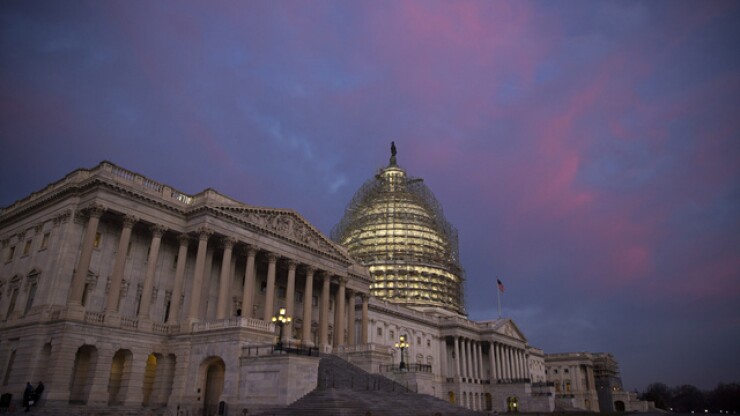(Bloomberg) President Donald Trump’s pledge to repeal Obamacare ran into a Republican buzz saw. Now, his ambitious proposal to cut taxes is again encountering GOP opposition—from lawmakers in Democratic-leaning states.
Within a day of Trump’s top economic adviser Gary Cohn and Treasury Secretary Steven Mnuchin releasing a dozen bullet points outlining the administration’s tax goals, at least three House Republicans criticized one of the key provisions—eliminating the deductibility of state and local taxes—estimated to raise $1.3 trillion over a decade.
The largest beneficiaries of the tax break are in New York, New Jersey and California, all relatively high-tax blue states, which eat up more than a third of the nationwide benefits, according to the nonpartisan Committee for a Responsible Federal Budget.

“I think it’s very important that it remain in the code,” said Representative Leonard Lance, a New Jersey Republican. “I am going to fight to keep it.”
Lance said New Jersey has high property taxes that make the provision important for his constituents. He added that a push to eliminate that tax break was scuttled in the last big rewrite of the tax code in 1986.
Trump’s Home State
The state and local tax deduction is just one of the proposals that could provoke a titanic fight among Republicans as the White House tries to get its plan off the ground. The broader GOP fight is likely to focus on cost and how to pay for the individual and corporate tax cuts, if at all. There are 28 House Republicans from New York, New Jersey and California—more than GOP leaders can afford to lose on a tax bill without Democratic votes.
Ditching the deduction would raise federal tax revenue by $1.3 trillion over 10 years, according to the Tax Policy Center, which found that 90 percent of that increase would be paid by taxpayers who earn $100,000 or more. Dropping it from the bill would make it even more difficult to ensure that tax reform is revenue neutral, or doesn’t add to the deficit. Revenue neutrality is needed to make a tax overhaul permanent under budget reconciliation rules in the Senate.
Republicans from Trump’s home state of New York also said they want to keep it.
“I’m going to stand up for New York,” said Representative Chris Collins, who represents a district in western New York. “I do oppose” ending it, Collins said, but added that he’s going to weigh it along with Trump’s other proposal to double the standard deduction.
The tax plan on Wednesday also called for doubling the standard deduction, which would help lower- and middle-class taxpayers.
‘Open Mind’
The proposal to eliminate the state and local deduction represents a rare case in which conservative activists actually back a federal tax increase. The anti-tax activist Grover Norquist has argued that it effectively subsidizes—and therefore encourages—tax hikes on the state level, and that unwinding it would ratchet back that incentive.
Eliminating the state and local tax deduction will help to level the playing field and prevent some states from subsidizing others, according to an administration official who briefed reporters Thursday on the condition of anonymity to discuss White House strategy.
“It’s something I’m obviously very sensitive to coming from a high tax state,” said Representative Tom Reed, who represents upstate New York. "People have made it very clear to me, from New York that the property tax burden is huge and this is something that’s very important to them.”
Still, he said, “I’m keeping an open mind as we go through tax reform.”
Middle Class
New Yorkers claimed $68 billion in itemized deductions for state and local taxes in 2014, according to an analysis by the conservative Empire Center for Public Policy. The average deduction in New York for state and local taxes was $21,038 that year.
Senate Democratic Leader Chuck Schumer of New York singled out the proposal to eliminate the state and local tax deduction on Thursday when he attacked Trump’s blueprint as “a direct assault on the middle class.”
“It would mean an increase in taxes for middle-class families,” Schumer said.
Asked Thursday about Trump’s plan to scrap the state and local tax deduction, House Ways and Means tax subcommittee chairman Peter Roskam, an Illinois Republican, made no promises.
"We’re going to look at all that," he said.
—With assistance from Shannon Pettypiece and Che Odom





